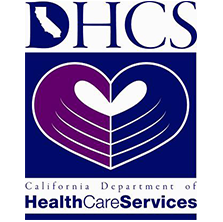90 DAY TREATMENT CENTERS: LAYING THE FOUNDATION
Though 30 day addiction treatment programs have long been the status quo, studies show that 90 day treatment centers offer addicts and alcoholics significantly better odds of maintaining sobriety.
UNDERSTANDING ADDICTION:
Addiction is often defined incorrectly as a poor behavioral pattern, when in fact it is a chronic disease. Behavioral patterns are indeed part of the picture, but the psychological root of these patterns and the physical effect they have on the body are of greater concern. Addiction, to both drugs and alcohol, is a disease that affects its victims twofold – as an allergy of the body as well as an affliction of the mind.
Most people have a fairly accurate conception of the physical aspect of addiction. As the body becomes used to regular intake of a foreign substance, it adjusts its definition of normality to include the presence of this substance. Therefore, the same quantity of the substance ceases to produce a high, requiring more and more of the drug to obtain the same effect. This phenomenon is usually described as an increase in tolerance. The same principal of the body growing accustomed to a substance’s presence is responsible for the withdrawal symptoms addicts experience upon sobering up. This physical reaction to the absence of a substance ranges from unpleasant to excruciatingly painful and dangerous. Both 30 day treatment centers and 90 day treatment centers offer intensive medical supervision for addicts undergoing the withdrawal process.
The psychological component of addiction is less widely understood, and is often ignored completely. 90 day treatment centers design their programs to account for the psychological conditions that often precede drug and alcohol abuse, as well as the unhealthy thinking patterns that develop as addiction takes hold. Drugs and alcohol often come into play when individuals suffer from preexisting mental conditions like chronic depression, anxiety disorder, bipolar disorder, and PTSD. These substances function as self-prescribed medications, allowing their users to escape temporarily from the condition that plagues them. However, the relief provided by drugs and alcohol is short-lived. The brain adapts to drugs in the same fashion as the body, redefining its normal state to include a foreign substance, thereby increasing tolerance and causing mental collapse upon discontinuation of consumption.
WHY CHOOSE 90 DAY TREATMENT CENTERS OVER 30 DAY TREATMENT CENTERS?
The lack of knowledge about addiction as a mental disease in addiction to a physical one may account in part for the general assumption that the condition can be righted in a mere 30 days. The reality of the situation is that even 90 day treatment centers only see addicts through the very first stage of recovery. Still, these 90 day treatment centers offer addicts time to grow and mature once they have detoxified their minds and bodies. A 30 day rehab center can scarcely see addicts through the detoxification process, let alone help them reconstruct their lives and cultivate new healthy coping skills.
90 day treatment centers design their programs with the obvious goal of helping addicts sober up, but they go above and beyond that in attempt to help addicts enrich their mental, physical, emotional and spiritual conditions.
We have already discussed the mental component of alcohol and drug addiction – the use of these substances as medication for psychological unrest. Unfortunately, the same addictive thinking that makes substance abuse an appealing mode of escape also renders many other indulgent behaviors dangerous for addicts. 90 day treatment centers address not only drug and alcohol abuse, but also other destructive and addictive behaviors like eating disorders, self-harm, codependency and sex and love addiction. These behaviors can provide addicts with the same sense of escape from self that they find in drugs and alcohol, making them particularly tempting in early sobriety when addicts have suddenly lost their preferred method of escape.
The concept of leaving behind any and all unhealthy practices at once seems overwhelming – it is common for addicts to feel that since they are giving up substances, they should be able to hold onto some of their less destructive vices. Cigarette smoking and risky sexual behavior are often identified as lesser evils and therefore continue in sobriety. The problem with this strategy is that while any means of escapism is active, no true progress ca be made. It is only by removing all distractions and really sitting with the painful emotions that emerge in sobriety that they can be worked through. 90 day treatment centers are aware that neglecting to address these peripheral escapist behaviors is an incredibly common cause for relapse in early sobriety. The extended treatment program allots enough time to work on not only removing drugs and alcohol, but addressing any other secondary addictions that show their faces when the substances are out of the picture.
SAFE HARBOR: A NEW HOME
Male and female addicts and alcoholics face the same disease, but experience different physical, emotional, and psychological symptoms and consequences of the condition. For women, addiction to drugs and alcohol is deeply intertwined with issues of self esteem, body distortion, victimization and codependency. Women alcoholics and addicts all too often enter treatment with a history of physical or sexual abuse, some of which may have predated substance use and some of which may have come along with it. Exploring these topics is essential to recovery, and is something that must be done in a protected all-female environment.
Safe Harbor Treatment Center for Women is a 90 day treatment program in which women have the opportunity to work through addiction and co-occurring disorders and issues in a safe and comfortable setting. Safe Harbor’s program is designed specifically to meet the needs of female addicts and alcoholics, and is run and staffed exclusively by women who have recovered from addiction and alcoholism. Through a multilateral program of structured therapeutic groups, individual counseling, 12-step meetings, life skills development and uplifting social activities, Safe Harbor helps women discard their old lives and begin anew. Any addicted woman who is looking for a better way of living has a place waiting for her in the Safe Harbor family.
START YOUR JOURNEY WITH
SAFE HARBOR HOUSE
(310) 861-4157
Contact Us Today
Verify Your Insurance




